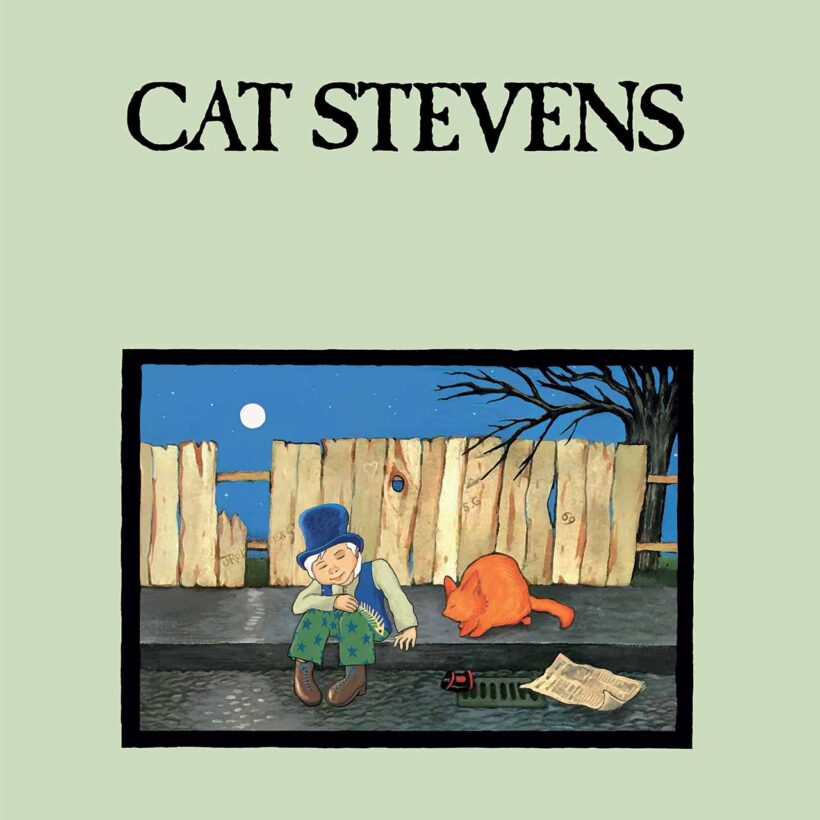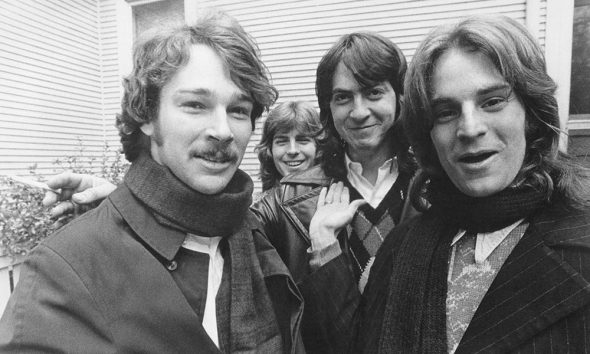‘Teaser And The Firecat’: How Cat Stevens Made Another Masterpiece
Under pressure to deliver a hit follow-up, the singer-songwriter broadened his sound and sold more albums than ever.

Though he was just 23 years old when his fifth album, Teaser And The Firecat, was released in October 1971, singer-songwriter Cat Stevens had already weathered a few storms. Following his 1966 debut single, “I Love My Dog,” Stevens had dealt with pop success, burnout, a near-death experience when he contacted tuberculosis, and the challenge of starting over with a new sound. But the enormous success of his previous album, the mellow, sensitive Tea For The Tillerman, gave him a new challenge to deal with: expectation. Reports at the time claimed that there were half a million pre-sales for Teaser in the US alone.
For many, the pressure to produce another smash hit album would be overwhelming. Stevens saw the hype as another challenge to overcome. “I’d made quite a change in my life, and then that became my modus operandi,” he told the Broken Record podcast in 2022. “I was continuously walking through thresholds and trying to reach a new height, somewhere better than where I was… A lot of people were saying, well, is he going to be able to do something as good? And so this was me riding a wave, and inspired, and ticking all the boxes.”
Stevens was keen to expand upon Tillerman, both in sound and themes, and already bristling against being pigeonholed. He told Record Mirror in June 1971, “It’s very different from the others. Some people will like it, some won’t. I’ve got this sound people associate with me, and yet I want to move and change. What I want them to see in all my work is clarity. I can’t stand music that’s unclear.”
Fans were given an early taste of Teaser And The Firecat when one of its most popular songs, the timeless “Moonshadow,” was released as the B-side of Tillerman’s “Father And Son” in October 1970. The following summer it became a worldwide hit in its own right. “Moonshadow” finds Stevens awestruck by the wonders of nature and vowing to take strength from it in the future. Like Tillerman’s “Where Do The Children Play?,” its roots were in his London upbringing, as he told Broken Record. “I was a city lad, and therefore I was used to looking at the moon with street lights. So I never saw my shadow until I took a holiday in Spain. This was just before I was making the record, and lo and behold, I looked down and it’s me, it’s my shadow. I couldn’t believe it.” Stevens set his poetic musings to a beautiful, lilting melody and it created a hippie anthem, destined to be played around campfires for the rest of eternity.
Another Teaser highlight that drew upon nature was the soulful opener “The Wind.” Here Stevens sings about the creative process, likening waiting for inspiration to listening to the wind. He knows he can’t predict the mercurial weather condition and has made peace with it, seeing it as part of his spiritual path (“Where I’ll end up, well, I think only God really knows.”). Stevens elaborated on the song while talking to Rolling Stone in 2022, “I’m talking to somebody; I think it’s the divine, but I’m not quite sure, and because I’m not sure, it’s universal. My goal was to be able to detach myself from my physical surroundings and material things. I was very earnestly searching. I would visit esoteric bookshops whenever I could, and pick up whatever new pathway to the truth I could find.”
As with “Trouble” from 1970’s Mona Bone Jakon, “The Wind” was a deeply personal song with such universal appeal that it went on to soundtrack memorable scenes in much-loved movies. In Cameron Crowe’s Almost Famous, Stevens’ song is played while Kate Hudson’s character, Penny Lane, dances alone among the post-gig litter of an empty auditorium. Wes Anderson used the song in Rushmore as protagonist Max Fischer flies a kite before making up with his estranged friend Herman.
Teaser also explored the more overtly political side of Stevens’ songwriting. The rambunctious, hard-strumming “Changes IV” bristles with revolutionary fever, with Stevens certain that much-needed change was around the corner. Meanwhile, the rousing “Peace Train” was a call for positivity and understanding, offering hope at a time of great unrest. Not only was it another huge hit for Stevens, reaching No 7 on the US Billboard 100, but its hopeful message has resonated through the generations. “Peace Train”’s lyrical call for unity was matched by its upbeat music, which drew upon Stevens’ Greek heritage, adding a dimension that most folk protest songs of the time lacked. The influence of Greek music was even more pronounced on “Rubylove,” a sweet devotional in 7/8 time which included a verse in Greek and featured bouzouki virtuosos Andreas Toumazis and Angelos Hatzipavli. When he’d launched his pop career, the singer had chosen the name Cat Stevens after deciding that his given name, Steven Demetre Georgiou, wasn’t ‘pop’ enough. By Tillerman, he was self-assured enough not to worry anymore.
Another guest musician was recruited to add some pizzazz to “Morning Has Broken,” an adaptation of a Christian hymn from 1931 which set lyrics by English writer Eleanor Farjeon to the Scottish Gaelic tune “Bunessan.” “Rick Wakeman happened to be in Morgan Studios where we were recording Teaser,” Stevens told Broken Record. “Instead of it being just only acoustic, I wanted something really flowery and magnificent and he did it so beautifully.” As Wakeman was on another label, he didn’t get the credit he deserved for writing a magnificent piano score that transformed the four-verse hymn into the song that gave Stevens an international smash hit and would go on to become a standard.
Perhaps Teaser’s greatest moment though, comes with the magical “How Can I Tell You.” Romantic frustration has never sounded so gorgeous – all delicately fingerpicked guitar, tender vocals, and lovelorn lyrics. Stevens’ tongue-tied narrator can’t find the words to express his feelings, but the song says it all – if only he could play it to his secret love.
Following Tillerman was never going to be easy but with Teaser And The Firecat, Stevens showed he could expand his sound while making music that was both profound and more commercially successful than ever. Released in October 1971, it soared up the charts worldwide and sold three million copies in the US alone. In the months following the release, Stevens’ score for Hal Ashby’s dark comedy Harold & Maude proved hugely popular, adding another string to his bow. Following Mona Bone Jakon and Tillerman, it was the third in a glorious run of albums steeped in wisdom and beauty that made Stevens one of the most beloved singer-songwriters on the planet. Generations later, his songs remain as vital as ever.














